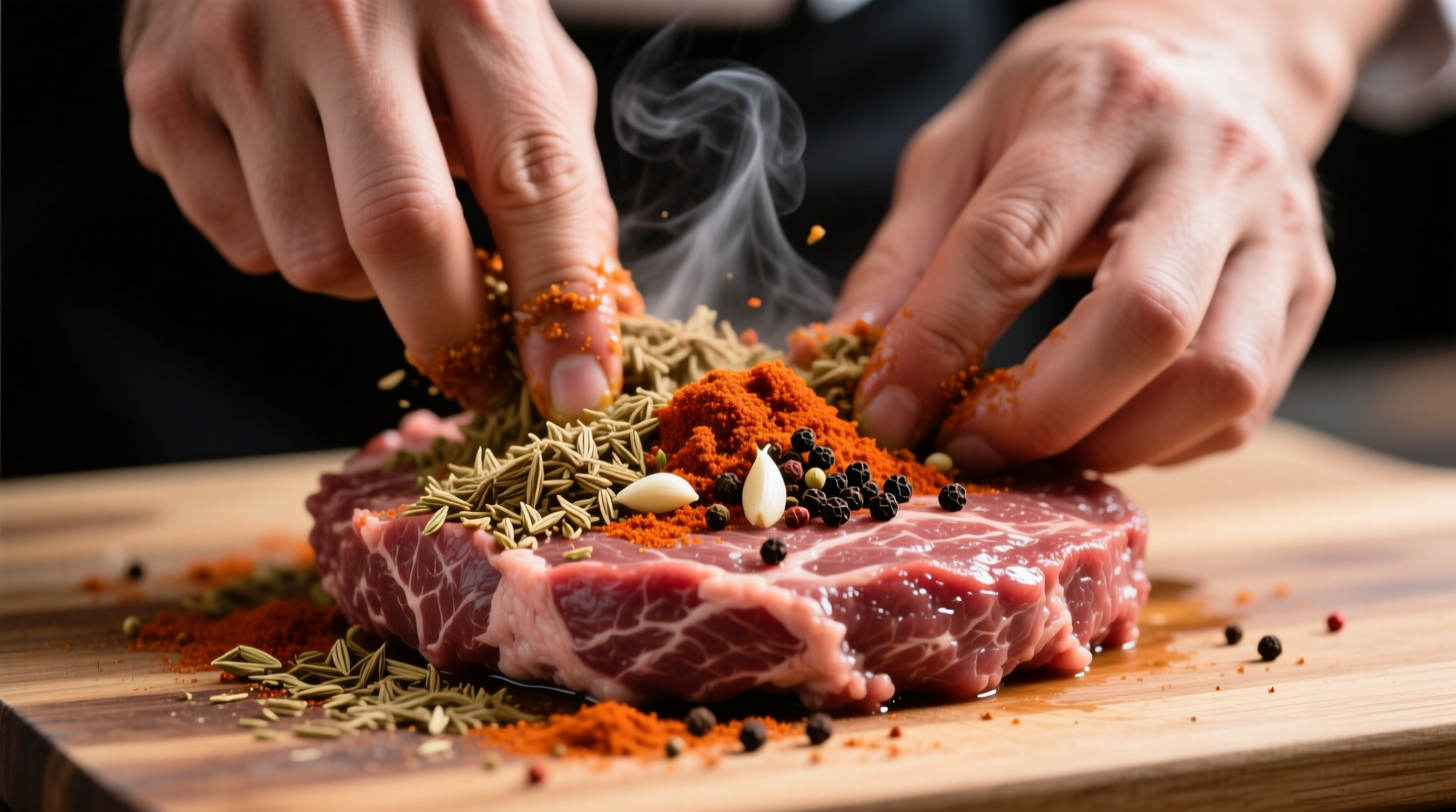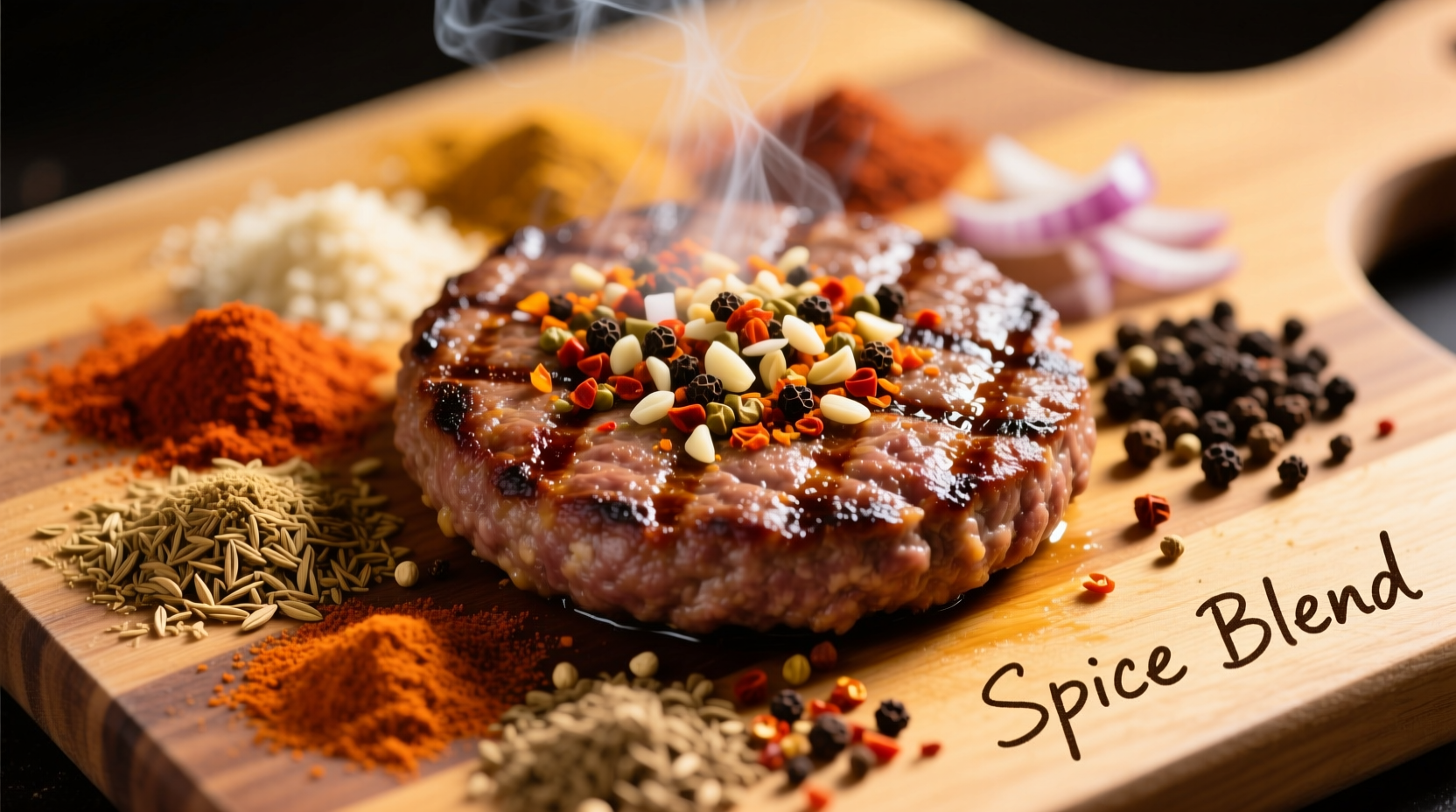The best spices for hamburgers include black pepper, garlic powder, onion powder, smoked paprika, and cayenne pepper. A classic blend combines 1 teaspoon black pepper, 1/2 teaspoon garlic powder, 1/2 teaspoon onion powder, and 1/4 teaspoon smoked paprika per pound of ground beef for optimal flavor without overpowering the meat's natural taste.
Your Ultimate Guide to Perfect Hamburger Spice Blends
Transform your ordinary burgers into extraordinary culinary creations with the right spice combinations. Whether you're grilling for a backyard barbecue or perfecting your weeknight dinner routine, understanding which spices enhance hamburger flavor can make all the difference between a good burger and an unforgettable one.
Professional chefs and home cooks alike agree that proper seasoning is the secret weapon behind restaurant-quality burgers. The right spice blend doesn't just add flavor—it creates a complex flavor profile that complements the meat's natural richness while adding depth and character to every bite.
Why Spices Matter for Hamburgers
Ground beef provides an excellent canvas for spices because its relatively neutral flavor profile allows seasonings to shine through. Unlike steak, where the cut and marbling provide most of the flavor, burgers benefit significantly from thoughtful seasoning that enhances their taste without masking the quality of the meat.
Food science reveals that certain spices interact with the proteins and fats in ground beef to create new flavor compounds during cooking. This Maillard reaction—responsible for that delicious browned crust on your burger—works synergistically with spices to develop complex, mouthwatering flavors that simple salt and pepper alone can't achieve.
| Spice | Flavor Profile | Recommended Amount (per lb) | Best Used When |
|---|---|---|---|
| Black Pepper | Sharp, pungent, earthy | 1 tsp freshly cracked | Always included in basic blends |
| Garlic Powder | Savory, umami-rich | 1/2 tsp | For deeper savory notes |
| Onion Powder | Sweet, pungent | 1/2 tsp | Enhances meaty flavor |
| Smoked Paprika | Smoky, slightly sweet | 1/4 tsp | Grilling or adding smokiness |
| Cayenne Pepper | Sharp heat | 1/8 tsp (adjust to taste) | When heat is desired |
The Evolution of Hamburger Seasoning
Hamburger seasoning has evolved significantly since the early 20th century. Initially, burgers were seasoned with nothing more than salt and pepper, reflecting their working-class origins as quick, affordable street food. As burgers gained popularity through mid-century diners and fast food chains, seasoning approaches began to diversify.
According to culinary historians at the Culinary Institute of America, the 1950s saw the introduction of more complex seasoning blends as home cooking became more sophisticated. By the 1980s and 1990s, with the rise of gourmet burger joints, chefs began experimenting with global spice traditions, incorporating ingredients like cumin, coriander, and even Asian-inspired elements into their blends.
Today's burger seasoning represents a perfect fusion of tradition and innovation, with professional chefs drawing from diverse culinary traditions while respecting the fundamental qualities that make a great hamburger.
Essential Spice Blends for Perfect Burgers
Classic American Blend
This timeless combination enhances the natural beef flavor without overpowering it:
- 1 teaspoon freshly cracked black pepper
- 1/2 teaspoon garlic powder
- 1/2 teaspoon onion powder
- 1/4 teaspoon smoked paprika
- 1/4 teaspoon mustard powder
Mix these spices thoroughly with one pound of ground beef (80/20 blend recommended). Avoid overmixing to prevent tough burgers.
Southwest-Inspired Blend
For those who enjoy a bit of heat and complexity:
- 1 teaspoon smoked paprika
- 1/2 teaspoon cumin
- 1/2 teaspoon garlic powder
- 1/4 teaspoon chipotle powder
- 1/4 teaspoon oregano
- Pinch of cayenne (optional)
This blend works particularly well with chuck or sirloin blends and pairs beautifully with pepper jack cheese and avocado toppings.

When to Add Spices: Timing Matters
Professional chefs emphasize that when you add spices matters as much as which spices you use. For optimal flavor development:
- For dry spices: Mix into the ground beef just before forming patties—no more than 15 minutes before cooking. Adding spices too early can draw out moisture and affect texture.
- For fresh herbs: Incorporate delicate herbs like parsley or chives just before forming patties to preserve their fresh flavor.
- For salt: Many chefs recommend salting just before cooking to prevent moisture loss, though some prefer to mix salt with other dry spices.
The University of California's Food Science Department notes that allowing spices to rest with the meat for a short period (5-10 minutes) helps distribute flavors more evenly without negatively impacting texture.
Spice Application Techniques from Professional Kitchens
Mastering these professional techniques will elevate your burger game:
Proper Mixing Method
Use a gentle folding motion rather than vigorous mixing. Overworking the meat creates dense, tough burgers. Professional chefs recommend handling the meat as little as possible—just enough to distribute the spices evenly.
The Thumb Indentation Trick
After forming your patties, press a shallow indentation in the center of each one with your thumb. This prevents the burger from puffing up during cooking, ensuring even thickness and consistent cooking throughout.
Temperature Matters
Keep your ground beef and spices cold until ready to mix. Warm meat smears more easily, leading to less tender burgers. The American Meat Science Association recommends keeping ingredients below 40°F (4°C) until cooking.
Spice Combinations to Avoid
While creativity is encouraged, certain spice combinations can overwhelm your burger:
- Overpowering herbs: Strong herbs like rosemary or thyme can dominate the flavor profile when used in anything but minimal quantities.
- Excessive sugar: While a small amount of brown sugar can enhance caramelization, too much creates an unpleasantly sweet burger that burns easily.
- Multiple competing heat sources: Combining several spicy ingredients (cayenne, chipotle, hot paprika) often results in indistinct heat rather than layered flavor.
Remember that the goal is to enhance the beef flavor, not mask it. As culinary expert Antonio Rodriguez notes, "A great burger seasoning should whisper to the palate, not shout. The beef should remain the star of the show."
Customizing for Different Meat Blends
The ideal spice blend varies depending on your meat selection:
- Chuck (80/20): Can handle bolder seasonings like cumin, coriander, and smoked paprika
- Brisket blends: Complement well with coffee, cocoa powder, and chipotle for depth
- Turkey or chicken burgers: Benefit from more aromatic spices like sage, thyme, and lemon zest
- Veggie burgers: Require different approaches entirely—focus on umami boosters like nutritional yeast and smoked salt
Understanding these context boundaries ensures your spices enhance rather than conflict with your chosen meat's natural characteristics.
Storage and Freshness Tips for Maximum Flavor
Spice quality directly impacts your burger's final taste. Follow these guidelines for optimal results:
- Store whole spices in airtight containers away from light and heat
- Grind spices just before use for maximum flavor impact
- Dry spices typically maintain peak flavor for 6-12 months after opening
- Test spice freshness by rubbing a small amount between your fingers—if the aroma is weak, it's time to replace
According to research from the Flavor Research and Education Center at Ohio State University, freshly ground spices can contain up to 300% more volatile flavor compounds than pre-ground versions, significantly enhancing your burger's taste profile.
Putting It All Together: Your Perfect Burger Journey
Creating the perfect spiced hamburger involves more than just selecting the right seasonings—it's about understanding how flavors work together and applying techniques that maximize their impact. Start with quality ingredients, choose a spice blend that complements your meat selection, handle your ingredients properly, and cook with attention to detail.
Whether you're preparing a simple weeknight dinner or hosting a special occasion barbecue, these spice principles will help you create consistently delicious burgers that impress family and friends. Remember that cooking is both an art and a science—don't be afraid to experiment while respecting the fundamental principles that make burgers so universally beloved.











 浙公网安备
33010002000092号
浙公网安备
33010002000092号 浙B2-20120091-4
浙B2-20120091-4